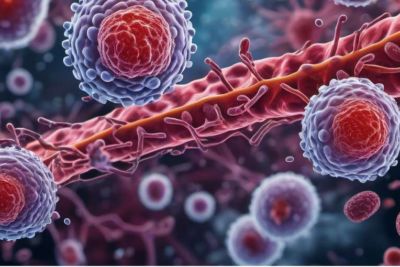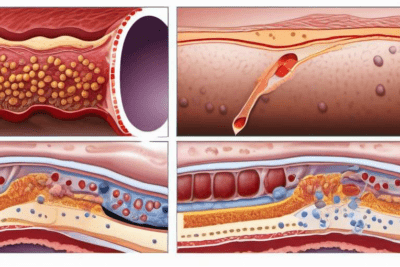
Finding a single tiny speck in your urine can be alarming. It's a common concern that many individuals experience at least once. While it's often harmless, it can sometimes be indicative of an underlying health issue.
Urine is a waste product produced by the kidneys, and its appearance can tell us a lot about our overall health. It's important to pay attention to any changes in your urine, including the presence of white particles or sediment.
🔍 Seeking a breakthrough in Type 2 Diabetes management?
Discover our expert insights and innovative approaches on ‘How to Cure Diabetes’.
Click to transform your health journey today!
What you\'ll find in this article?
- What causes white particles in urine?
- Is it normal to have debris in your urine?
- When should you consult a doctor about urine sediment?
- What are the symptoms associated with particles in urine?
- How can you differentiate between normal and abnormal sediment in urine?
- What is the connection between pregnancy and particles in urine?
- How are crystals in urine related to health conditions?
- Related questions on particles in urine
What causes white particles in urine?
White particles in urine can be caused by a variety of factors. It can be as simple as a result of dehydration, where urine becomes more concentrated with minerals that can form sediment. However, it could also be a sign of a urinary tract infection (UTI), where bacteria cause pus to appear in the urine.
Kidney stones can also cause white particles to appear when they start to break down and move into the bladder. Additionally, conditions like prostatitis or cystitis can cause white blood cells to be present in the urine, which can appear as white specks.
In women, vaginal discharge can sometimes contaminate a urine sample, making it appear as though there are white particles in the urine. This is why it's important to provide a clean-catch urine sample for testing.
Phosphate crystals, which can form in alkaline urine, can also appear as white sediment. These are generally harmless and can be a result of consuming foods high in phosphorus.








Explore our specialized services in diabetes care 🌟.
From personalized diet plans to effective exercise routines, we have what you need to take control of Type 2 Diabetes.
Visit our services page now!
Is it normal to have debris in your urine?
Having small amounts of debris in the urine can be normal, especially if it's transient and disappears after rehydration. Our kidneys are constantly filtering out waste, and some sediment can be expected from time to time. However, persistent or increasing amounts of debris might be a cause for concern.
Sediment can consist of cells, bacteria, crystals, and other substances that might indicate an underlying health issue like diabetes or a urinary infection.
When should you consult a doctor about urine sediment?
If you frequently notice white particles or sediment in your urine, it's important to consult a healthcare professional. This is particularly true if it's accompanied by symptoms such as pain during urination, an unusual urge to urinate, fever, or if your urine is cloudy or has a strong odor.
It's also critical to consult a doctor if you notice any blood in your urine, which can manifest as red or brown specks. Known as hematuria, this could indicate a more serious condition.
What are the symptoms associated with particles in urine?
Symptoms that can accompany white particles in urine include a burning sensation during urination, a frequent need to urinate, and pelvic pain. These symptoms could indicate a urinary tract infection (UTI).
In cases where kidney stones are the cause, there might be severe pain in the side and back, below the ribs, pain that spreads to the lower abdomen and groin, or pain during urination.
- Cloudy urine
- Strong-smelling urine
- Urinary urgency
How can you differentiate between normal and abnormal sediment in urine?
To differentiate between normal and abnormal sediment, it is important to consider the color, consistency, and quantity of the sediment, as well as any accompanying symptoms.
Normal sediment might occasionally appear without other symptoms and typically resolves itself. However, abnormal sediment is often accompanied by symptoms of infection or other health issues and persists over time.
What is the connection between pregnancy and particles in urine?
During pregnancy, the body undergoes several changes that can lead to the presence of particles in urine, such as increased vaginal discharge, which can mix with urine. However, pregnant women are also at a higher risk for UTIs, so it's important to monitor any changes and consult with a healthcare provider.
Crystals in urine, or crystalluria, can be related to various health conditions. They form when there's an excess of certain minerals in the urine. While they can occur in healthy individuals, persistent crystalluria can be associated with metabolic disorders, including diabetes, and might indicate a higher risk for kidney stones.
Is it normal to have small specks in urine?
It can be normal to have small specks in urine occasionally. If they are transient and not accompanied by other symptoms, they might not be a cause for concern. However, if the condition persists, it's a good idea to seek medical advice.
Persistent specks could be a sign of a health issue that requires treatment, such as an infection or kidney stones.
Why is there bits in my urine sample?
Bits in your urine sample could be due to a variety of causes, ranging from benign to serious. They might be a result of urinary tract infections, kidney stones, or even dietary factors. If you're concerned, a medical professional can help determine the cause.
What is the weird debris in my urine?
Weird debris in urine could signify an abnormality. It's important to consider other symptoms and potential health conditions. If you're unsure, a healthcare provider can perform a urine analysis to determine the cause.
What are the tiny granules in my urine?
Tiny granules in urine can be crystals or other types of sediment. If they're consistently present, it's advisable to have a urine analysis done to check for health conditions that could cause crystalluria or other forms of sediment.
In conclusion, while a single tiny speck in your urine might not always be cause for alarm, being aware of the potential causes and associated symptoms is crucial for maintaining good urinary tract health. Always consult a healthcare provider if you have persistent changes in your urine or develop new symptoms. Remember, proactive health monitoring is the key to early detection and management of potential health issues.
✨ Other articles you might be interested in:
- Type 2 waking up with dry mouth and thirst: causes and remedies
- Can swollen limbs lower blood glucose levels in diabetics?
- Identifying Your Diabetes Type: Which Type of Diabetes Do I Have?
- AI model flags up hypo symptoms for safer driving with diabetes
- FDA Greenlights New Type 2 Diabetes Drug Jentadueto XR



